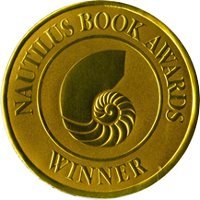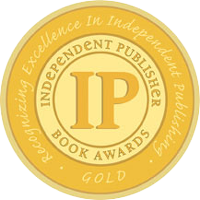Dr. Jonathan Shay Has Written The Foreword For Continuing Actions
 I intended to have Continuing Actions completed and available for sale by last May–thank god I blew that deadline. If I hadn’t, I would have missed out on an opportunity that felt so remote I hardly allowed myself to consider it a real possibility. But I delayed publication, took a chance, and Dr. Jonathan Shay agreed to write the Foreword for my second book.
I intended to have Continuing Actions completed and available for sale by last May–thank god I blew that deadline. If I hadn’t, I would have missed out on an opportunity that felt so remote I hardly allowed myself to consider it a real possibility. But I delayed publication, took a chance, and Dr. Jonathan Shay agreed to write the Foreword for my second book.
For those who don’t know Dr. Shay, here’s a short list of his credentials and accomplishments: He’s a clinical psychiatrist (MD) with 20 years working with Vietnam veterans at the Boston VA, a classical scholar (PhD), the best-selling author of two books, and 2007 MacArthur Foundation Fellow (aka “genius grant” winner). His two books on combat trauma, Achilles in Vietnam and Odysseus in America, have helped countless veterans–myself included–to understand the very normal, human reactions that healthy people bring home with them from combat.
I tracked Jonathan down through LinkedIn about six months ago. To my surprise, he answered my email quickly and agreed to read, and possibly comment on, my manuscript. He ended up reading the manuscript and commenting on it not once, but twice. I incorporated his suggestions into the text and the book is measurably better for his contributions. But he didn’t stop there.
Somewhere in the course of one of our phone calls, Jonathan asked what he could do to help me get this book “out there.” Seizing the opportunity, I asked if he’d consider writing a small blurb endorsing the book that I could quote on the front cover. He seemed to be looking for something else, so I threw caution to the wind and asked if he’d write the book’s Foreword. I was elated when he said yes.
I wasn’t jumping up and down and giggling, but yes, I was elated. Why? Because the weakest part of my credibility in writing this book, I feel, comes from the fact that I am not a mental health professional. I’ve lived my own traumas, experimented with good and bad ways to deal with them, and finally learned how to incorporate them into my life, but I’m not a PhD, PsyD, or MD. Hell, I’m not even a counselor. This fact always interjected itself into my thought process while I was writing Continuing Actions and made me question why anybody should care what I have to say about the challenges of coming home. This nagging question almost pushed me to shelve the project several times, but–call it confidence, bullheadedness, or the fact we got the cheapest cable subscription and there’s never anything worth watching on TV–I kept writing.
This is why, when Jonathan decided to support my work in such a public manner, I felt elated. He put the full weight of his experiences and education behind Continuing Actions and has bolstered my observations and recommendations with the credibility of his distinguished career. So, no, I’m not a shrink. But a pretty awesome shrink thinks what I have to say is important enough to recommend it to others.
At the risk of sounding like a broken record, the book is slightly delayed again. But the final file has been submitted to the interior designer, the cover is almost done, and things are coming together nicely. Best guess for release is now mid-August.
In the meantime, here are some excerpts from the Foreword. I’m going to go back to being elated.
Foreword
By Jonathan Shay, MD, PhD
Foreword copyright, 2015, by Jonathan Shay
This Foreword reflects my appreciation and respect for both this book and Dan Sheehan’s earlier, After Action. Both books are vividly and energetically written with a wealth of striking explanatory metaphors, such as describing the life-saving suppression of all emotions that do not directly contribute to surviving in war as a tourniquet. A tourniquet may be live-saving in the needful moment, but limbs die and become gangrenous if it is left on too long. Carrying the tourniquet of suppression and compartmentalization of emotions back to civilian life has ruined the health and happiness of countless veterans and their families.
I especially applaud Sheehan for his emphasis on sleep. Sleep is an essential logistical entity that gets used up and must be resupplied—just like water, fuel, and ammo—and for which no amount of good attitude and motivation can substitute. This is especially true during recovery from combat and combat trauma. Every wellness discipline—yes, medicine—but also psychology, acupuncture, chiropractic, massage, clinical hypnosis, prayer, and meditation has a toolbag for sleep. Sheehan is persistent, practical, and persuasive on attention to sleep as a requirement if one is to make a healthy and successful return to civilian life, or life in garrison, after going to war. In my decades of clinical work with veterans, I have found adequate, restorative sleep to be the single most powerful predictor of a flourishing life after return from war.
It is well known that combat trauma murders sleep. But dangerously less well known is the fact that the cheapest, most easily available “medicine” for sleep—alcohol—also murders sleep. After return from war, combat veterans are frequently desperate to fall asleep and turn to alcohol, because, initially at least, it works. The trouble is, it burns off way too fast and you wake up too soon. Then the logic at 2 am is irresistible: “If two shots got me to sleep, two more will get me back to sleep . . . .” At the risk of getting too technical, acute tolerance sets in so fast that it’s demonstrable even with one dose. Couple this with withdrawal syndrome— the flip side of tolerance—and you wake up (too soon) even more wired (a mini-withdrawal) than when you went to sleep. This is one of the quickest ways to find yourself on the icy stairway to alcohol dependence and abuse. Satan is not part of my normal vocabulary, but I say without embarrassment as a psychopharmacologist: The pharmacology of alcohol with respect to sleep was designed by Satan himself. . . .
Continuing Actions has the best portrait of the workings of workaholism in the life of a combat veteran that I have ever read or heard (including my own in Odysseus in America). This is the most common strategy that veterans use, and many find it hard to consider this a product of psychological injury. This is because steady, successful work brings home bushels of money—the very definition of doing well in our society. ”He [or she] is rolling in dough—he must be okay!” The problem is, workaholic veterans overlook bringing one big thing home from work—themselves. A common pattern is that they start each day sleep deprived and exhausted, work two or three jobs in succession, and maybe stop off for a drink or two before returning home and flopping exhaustedly into the recliner, sofa, or bed to sleep badly. Then the alarm goes off and they do it all again. They might be earning money, but this “okay” veteran is at risk for losing his or her job, family, and life.
There is a common, yet dangerous, misconception many veterans have that they must meet the full clinical diagnosis of PTSD before their psychological injury is legitimate and worthy of treatment. This leads many to ignore their injuries until they become overwhelming—often ruining their lives in the process. Continuing Actions is not written in clinical language, although some terms are unavoidable, and Sheehan has done an admirable job translating the technical jargon of human psychology into terms and metaphors all veterans can appreciate. Sheehan’s voice is that of a proud Marine veteran, and the personal details from his own life clearly show the insidious impact a psychological injury can have if left unattended. . . .


